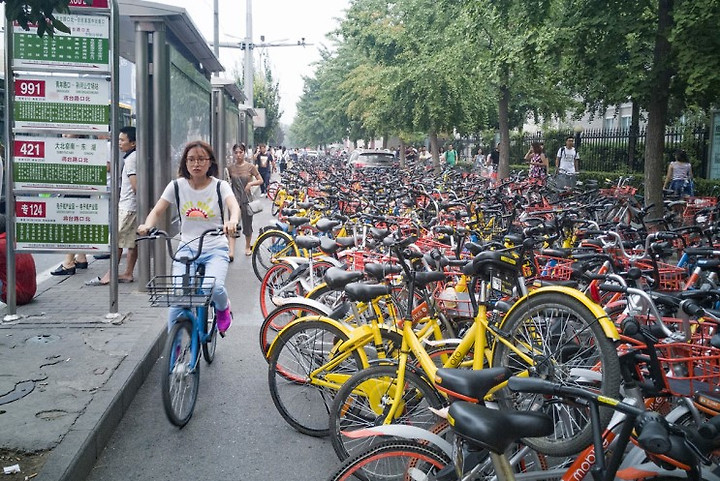[Resources] Six take-aways about the sharing economy in China
China is a universe that is coming towards us. In our case literally, as we hosted a delegation from the Chinese Chamber of Commerce at our offices in Amsterdam. Here is what I learned.

1. Challenges are similar
One of the main questions coming from the delegation was: “If something goes wrong on a platform, then who is responsible?” This questions is currently at the center of attention in China after Didi, the company that pushed Uber out of China and is worth over 60 billion dollar, closed down its highly successful carpooling service called Hitch. The closedown happened shortly after a second 2018 case of a driver being accused of raping and killing a female passenger. During their visit we spoke extensively about the classifications for sharing and platform economy companies and its consequences for how regulations apply. I will follow how this debate develops in China, and how local law-makers, like their counterparts in other countries will balance out privacy versus consumer protection.
2. Opportunities are similar too
The delegation visited a number of Dutch sharing economy platforms and initiatives to learn more about how to enable social cohesion, sustainability and economic resilience.
3. Size has a different meaning in China
Successful platforms grow quickly domestically and are able to rapidly expand into new markets. Didi’s Hitch service, described above was Didi’s answer to Blablacar, but quickly matched it’s total volume. During Chinese New Year’s alone, Hitch provided over 30 million passenger trips.
4. Perfection goes extreme in China
Imagine Uber shutting down its entire US operation after two horrible incidents.
5. Chinese platforms are faster
Historically early Chinese internet pioneers had a rough start in the 90s with a relatively small middle class and internet was still in its infancy. Yet local entrepreneurs were in many instances able to outcompete larger platforms from the United States. Today locally grown companies such as Alibaba and Tencent dominate the market and the local sharing economy is thriving. Looking ahead towards 2030 it is likely that many new technologies such as Artificial Intelligence will operate at a notable scale in China first, due to different cultural and governmental structures.

6. Chinese platforms are coming to a city near you
After testing it’s Smart City Platform called ‘City Brain’ which is a combination of big data and Artificial Intelligence in its hometown Hangzhou, Alibaba is now providing it to Kuala Lumpur, Malaysia. Increasingly cities will have new options in choosing who to work with to build and maintain their digital infrastructures.
Spending only a few mornings together meant we could only scratch the service. Still, it feels worthwhile to make an effort to invite Chinese city governments into the Sharing Cities Alliance. There is much to learn from each other.



